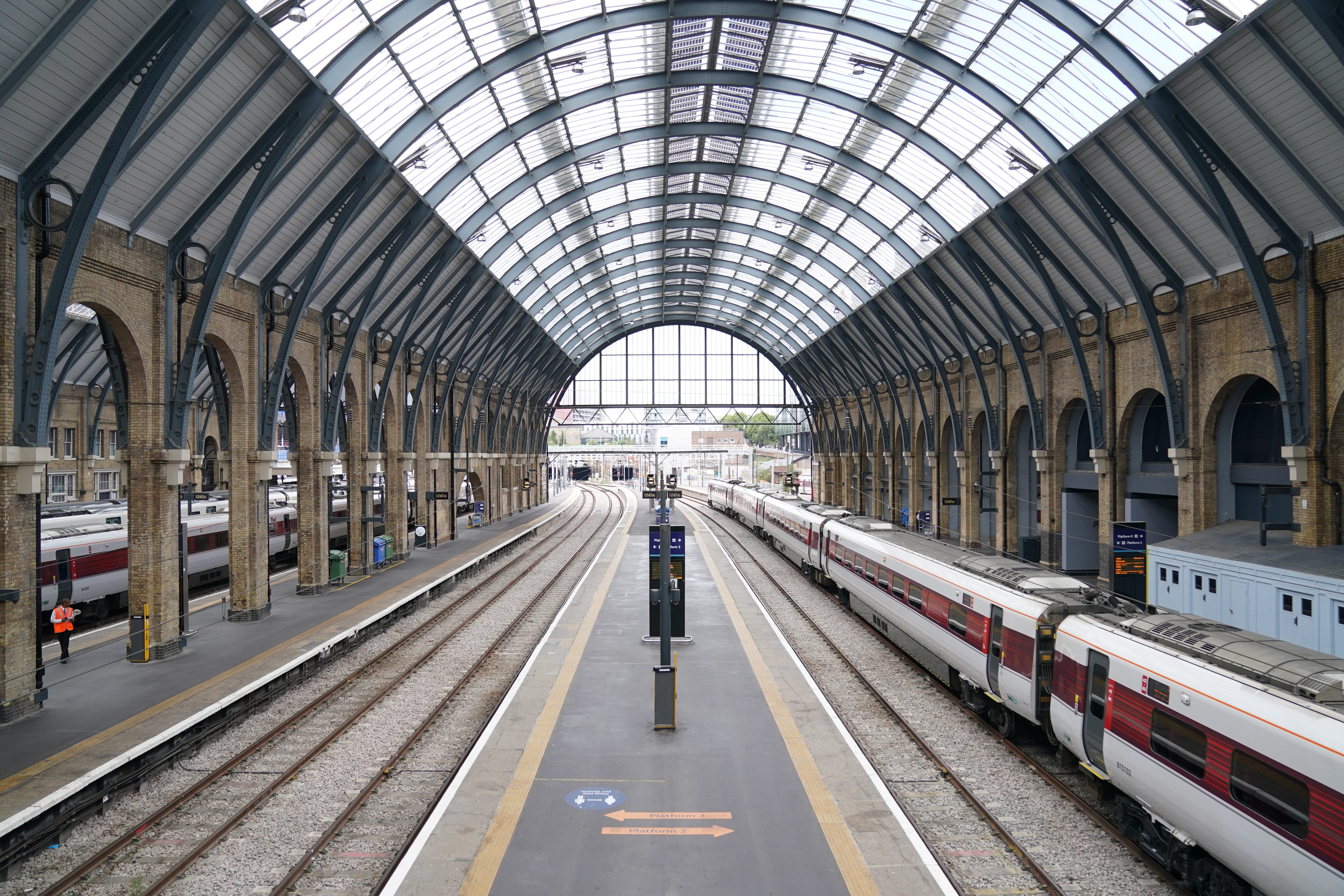We must reimagine the future of the railway to help it succeed
Editorial: Our railways have suffered disinvestment under both public and private ownership

For more than a century, and thanks to the rise of the internal combustion engine, Britain’s railways have been in an almost constant state of decline. The leak of sensitive information on Network Rail’s plans for the upkeep of the infrastructure over the next few years confirms that the forced neglect of the system continues to be one of its defining features.
While inflation rages and wage costs soar, Network Rail can only hold its spending on maintenance at a constant cash level; it means real terms investment spending on the existing system, leaving aside HS2 and other major prestige projects, will fall over the course of the decade. Such “disinvestment” will leave the railway in an even weaker position than it is today.
Network Rail, the state-owned enterprise that looks after the rails, cables, signals, points, and many stations, appears convinced it can still run a safe railway; but it also seems clear that it will be one that is even less reliable than at present, and with every likelihood that fares and subsidies (paid for from general taxation) will need to rise even to get to this unhappy state of equilibrium. Though the travelling public may find it difficult to believe, the medium-term prospect is of more delays, more services curtailed and more timetables gutted. Meanwhile, HS2 to the North and Midlands keeps getting trimmed to the point of unviability, and other much-needed Northern improvements to centres such as Bradford have been abandoned. The post-pandemic habit of hybrid working, turbocharged by substandard commuter services, is resulting in a permanent loss of revenues in the South East (ruinously so on the London Underground). Whatever else, this does not feel much like “levelling up” and “building back better”. In truth, it feels as if southern and London services are in decline – levelling down to what Manchester, Liverpool and Newcastle have long suffered.
Such is the scale of the challenges facing the modern railways. It’s often argued that there is no alternative to nationalisation. Yet much of the railway, infrastructure and operating services are already state-owned and the private operators have much of their fare structure and timetables regulated by the state. Pay is also tightly controlled by the Department for Transport. It’s not obvious what public ownership of the rump would yield. Mick Lynch and his RMT colleagues would still enjoy the right to strike, even if it was the people’s railway they were bringing to a standstill.
On the other hand, the nearly three decades since privatisation have witnessed a healthy investment in new rolling stock and a remarkable recovery, until the pandemic, in passenger numbers. Nor should anyone entertain the fantasy that either the nationalised British Rail or the old pre-war grand private companies were obvious successes. Those were also decades of poor investment and run-down facilities and trains. On the long view, the railways have suffered disinvestment under both public and private ownership.
The precarious state of the railways demands an independent review of their future. This need not augur another Beeching-style programme of retrenchment, if only because of the self-fulfilling tragedy of deliberately running a rail line down. Rather it needs to determine what is really needed to sustain a higher and better-balanced economic growth rate with a multi-decade horizon – the kind of mindset the Victorians adopted when they built their magnificent cathedrals such as St Pancras. Someone has to pay for the railways and their development, and the choice is straightforward in principle – taxpayers, passengers, or a balance between the two groups (albeit overlapping). All of this, naturally, has to be framed by the net zero commitment and the high possibility that the cost of private motoring and road freight will increase markedly as new technologies such as battery power, hydrogen fuel cells and synthetic fuels are developed. At the moment there seems little inclination within government or opposition to face up to the tough choices ahead, let alone confront the voters with them. Meanwhile, expect more points failures, more closures – and more cancellations on TransPennine Express.
Join our commenting forum
Join thought-provoking conversations, follow other Independent readers and see their replies
Comments
Bookmark popover
Removed from bookmarks